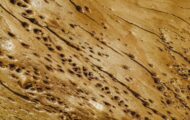Table of Contents
Fumigation is probably the most popular method of eliminating a termite infestation. It suits small as well as large properties and allows professionals to control the pest in a short period of time with the help of powerful termiticides. However, fumigation is an invasive method and involves vacating the place for a few days.
The gases used during fumigation are toxic for insects and guarantee their elimination. However, exposure to the gas can lead to various health problems for humans and pets. This is why one should be aware of the potential dangers involved in fumigation and take necessary precautions before considering this method.
In this post, we discuss the side effects of termite fumigation and various dangers associated with this pest control method.
Dangers of Fumigation – Termite Fumigation Side Effects
Termite infestation is devastating and requires effective methods to get rid of it. Hiring professional exterminators is one of the best ways to make sure it is efficiently dealt with.
Pest control companies usually employ tenting and fumigation which requires the occupants to move out of the place for a few days. They fill the entire place with gaseous chemicals to kill termites and their eggs. The professionals test the air before allowing the homeowners to move back in.
The gases released during fumigation are highly toxic to plants, animals, fish and humans. One of the biggest side effects of this method is that it requires moving out and removing all the pets and aquatic creatures. Remaining in the place can harm plants and animals. Instructions should be followed properly to make sure fumigation is safe and harmless.
Fumigation can also be harmful to the environment. After the process is completed, the toxic gases get released into the air from the home. One of these gases, sulphur fluoride contributes to global warming.
It can stay in the atmosphere for as long as a century. This gas can trap heat up to 4000 times more than carbon dioxide and is a powerful pollutant. It can destroy and harm the surrounding vegetation as well. So, if you have a garden outside the house, you should take appropriate measures to save your plants from the harmful effects of fumigation.
Inhaling Fumigation Gas
The most common dangers associated with fumigation is the risk of exposure to the gas. While this is something that can be prevented by following the professionals’ advice, inhaling fumigation gas can be really dangerous. Though deaths associated with fumigation are rare, death can happen if you get back into the fumigated home before the air is tested for safety.
Inhaling the concentrated fumes after the process can cause instant effects like nausea, vomiting, coughing, red eyes, sweating, itchy skin, excessive saliva secretion, running stomach and difficulty breathing. While these effects are treatable, full exposure to fumigation gas can prove to be fatal and lead to death.
Sometimes, inhaling fumigation gas might not show instant side effects and the person thinks nothing has happened. However, the chemicals can enter the body and show adverse health effects in the long run. Chemicals released during fumigation can cause neurological damage.
Fumigation experts always warn the homeowners about these dangers and advise them on safety precautions. If you experience any symptoms of chemical exposure, you should need medical attention immediately. Those who don’t experience symptoms but inhale the fumigation gas should also consult a medical professional to avoid any long-term consequences.
After Fumigation What To Do?
Once your exterminator tells you to re-enter the house, you can move inside with some safety precautions. When the fumigation period has ended, you will need to air out the house. All the windows should be opened and fans should be used to get rid of any traces of fumigants in the house. Keep the home ventilated for a few days to remove all the chemical fumes left inside.
Next, you should wash all the dishes and utensils left inside the house during the treatment. Even if they are clean, it is advisable to wash everything to remove any traces of chemicals used for fumigation. You should also clean countertops, furniture, floors and appliances in the house. You can also use an air filter to remove any residues of gas.
You should trash any food or packets you left in the house during fumigation. These items must have been contaminated and should not be consumed. Make sure you clean your pet’s bowl and supplies as well. Wash all the bed sheets and furniture coverings to ensure no family member or pet come in contact with any leftover fumigant.
How Long After Fumigation Is It Safe For Pets?
Fumigation uses toxic chemicals which prove to be dangerous for pests as well as humans and pets living inside the property. This is why it requires extreme care and precaution before performing pest control with this method. Regardless of the infestation you are treating, all fumigants are dangerous and the process should be left to pest control technicians who are trained to do this professionally and safely.
It is important that humans and pets stay away from the property during and after the fumigation process until told to re-enter. The exact time it takes for the property to be safe for re-entry depends on different aspects of fumigation. This is why you should ask your technician about the best time to enter the home after fumigation.
Just like humans, pets also respond to fumigants and need precautionary measures. All the pets should be moved out of the house before fumigation. Most exterminators enquire about pets to protect them as a safety measure during the process. No pet should be allowed to enter the house soon after fumigation is completed. It is important to stay away for a considerable amount of time to avoid any dangers associated with exposure to fumigants.
Pets should be kept away until it is safe to move in. Your fumigator may advise on this. They often test the air for the levels of chemicals to suggest the best time for safe re-entry of humans and pets. While the pest control experts give the exact answer, you should keep the pets away for at least 24 hours to allow complete dissipation of fumigants.


